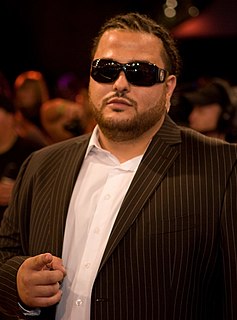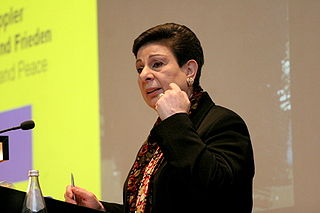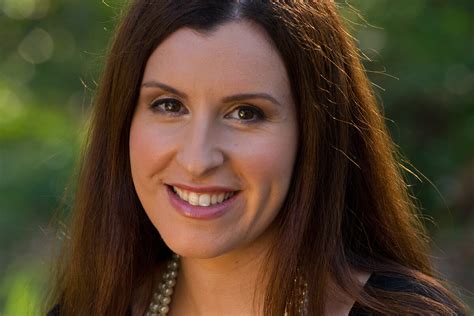A Quote by Larissa Sansour
What's great about science fiction is that it allows for surreal scenarios even if they pertain to the real world.
Quote Topics
Related Quotes
The future is unwritten. there are best case scenarios. There are worst-case scenarios. both of them are great fun to write about if you' re a science fiction novelist, but neither of them ever happens in the real world. What happens in the real world is always a sideways-case scenario. World-changing marvels to us, are only wallpaper to our children.
Science fiction is a weird category, because it's the only area of fiction I can think of where the story is not of primary importance. Science fiction tends to be more about the science, or the invention of the fantasy world, or the political allegory. When I left science fiction, I said "They're more interested in planets, and I'm interested in people."
Science fiction is the most important literature in the history of the world, because it's the history of ideas, the history of our civilization birthing itself. ...Science fiction is central to everything we've ever done, and people who make fun of science fiction writers don't know what they're talking about.
I define science fiction as the art of the possible. Fantasy is the art of the impossible. Science fiction, again, is the history of ideas, and they're always ideas that work themselves out and become real and happen in the world. And fantasy comes along and says, 'We're going to break all the laws of physics.' ... Most people don't realize it, but the series of films which have made more money than any other series of films in the history of the universe is the James Bond series. They're all science fiction, too - romantic, adventurous, frivolous, fantastic science fiction!
Science fiction is fantasy about issues of science. Science fiction is a subset of fantasy. Fantasy predated it by several millennia. The '30s to the '50s were the golden age of science fiction - this was because, to a large degree, it was at this point that technology and science had exposed its potential without revealing the limitations.































